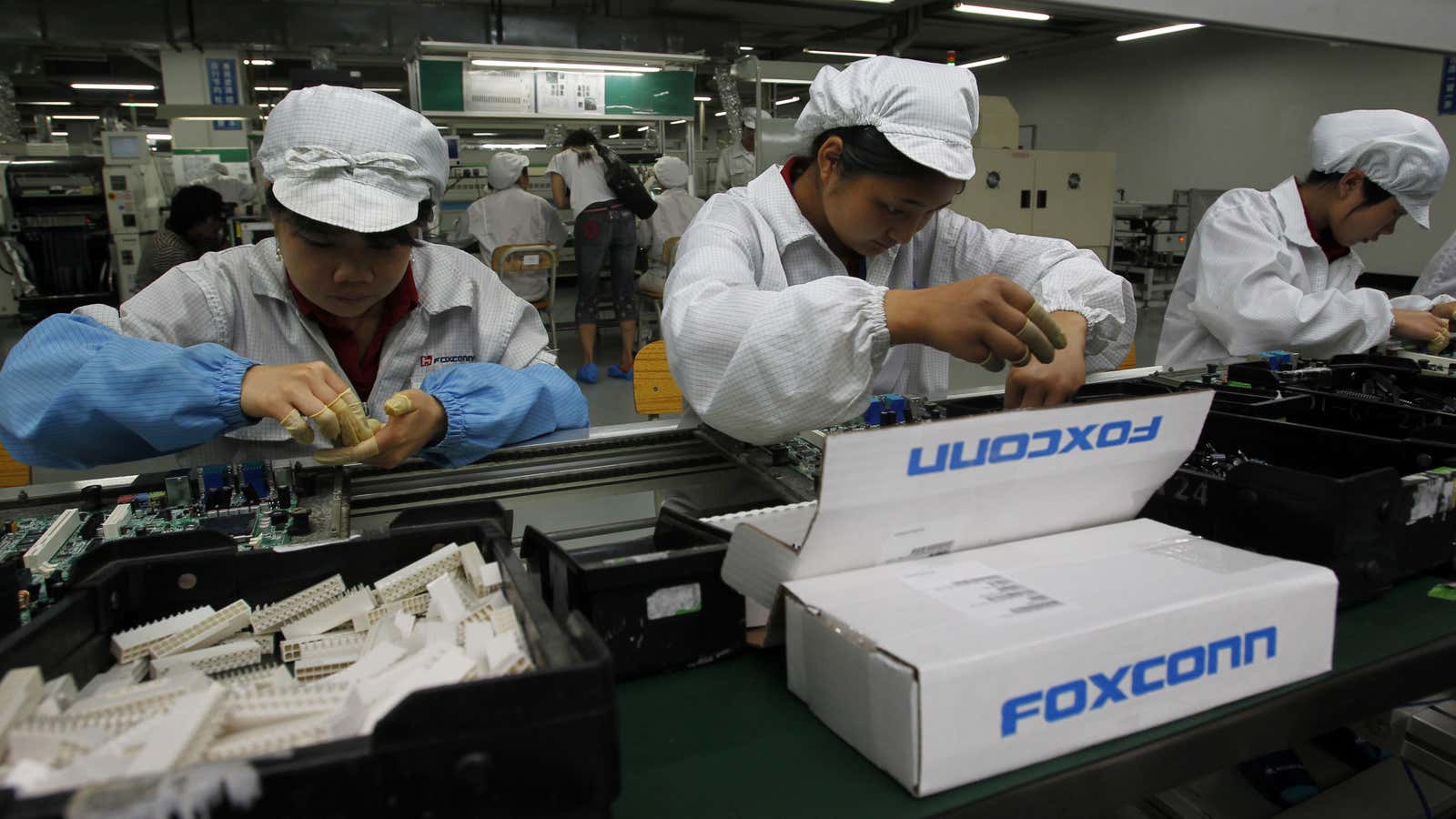Apple and Foxconn are preparing for a future when they won’t be so closely linked.
Foxconn’s massive production complexes, which make it China’s largest private-sector employer with more than 1.2 million workers, provide valuable economies of scale for Apple. But after years of negative reports about conditions in the plants and worker unrest leading up to the launch of the iPhone 5, Apple recently indicated it plans to start assembling some personal computers at its own US plant.
Foxconn, meanwhile, is finding places to put its money other than into Chinese assembly plants. It announced a deal in March to take a 10% stake in struggling Japanese consumer electronics producer Sharp. Completion has dragged on over pricing and control issues, but Foxconn has proceeded with investments in individual Sharp factories. It previously took over some Sony television plants and has also been investing in solar panel and power production and electronics retail in China, including a new joint venture with RadioShack, which has opened its first store in Shanghai.
Foxconn last week also spent $200 million on a 9% stake in GoPro, a US producer of wearable high-definition video cameras. The company has also begun building a production complex in Brazil while Indonesian officials have been touting talks with the company over a complex that would rival Foxconn’s sprawling Chinese campuses, with investment to reach $5 to $10 billion.
Intriguingly, Indonesian officials say Foxconn’s initial target would be to produce 3 million low-cost smartphones a year, primarily for the domestic market, with production to rise to an annual 10 million units. There’s been no talk of the phones being sold under an existing smartphone brand, though aside from Apple, Foxconn assembles electronic devices for Intel, Microsoft, Motorola Mobility, Nokia, Dell, Hewlett-Packard, and Nintendo, among other big names (and is reportedly to start making a smartphone for Amazon).
The path from contract manufacturer to branded producer has been well trod in Asia by the likes of HTC, Acer, Huawei, and others, but Foxconn has to be wary given the patent wars sapping the energies of smartphone makers. That may be the impetus behind its investments in Sharp and GoPro, but arguments over the wisdom of proceeding down the branded path reportedly led to the exit of the chief executive of one of the main Foxconn group companies in July.
Foxconn has quietly been building its branded products business for close to a decade, with motherboards, connectors, cables, and other components under its name and “barebones” PCs, for buyers who want to add memory and storage themselves, sold under other trade names it owns. Company officials, however, have in the past drawn a line between making components and producing finished consumer goods, in order to avoid antagonizing customers.
Indeed, the heavy mutual dependence of Apple and Foxconn virtually rules out the kind of frontal challenge Samsung has mounted to Apple, but both partners are hedging their bets.
